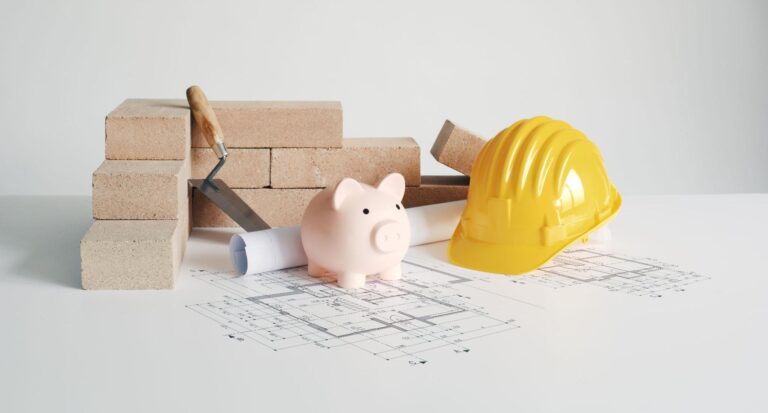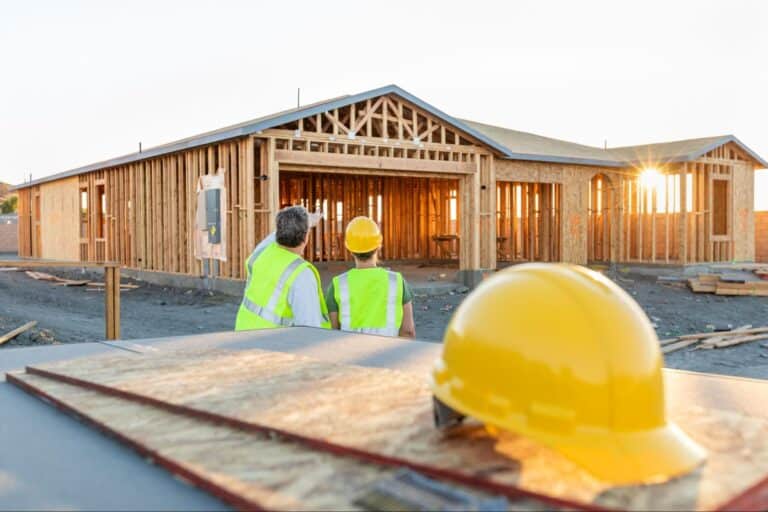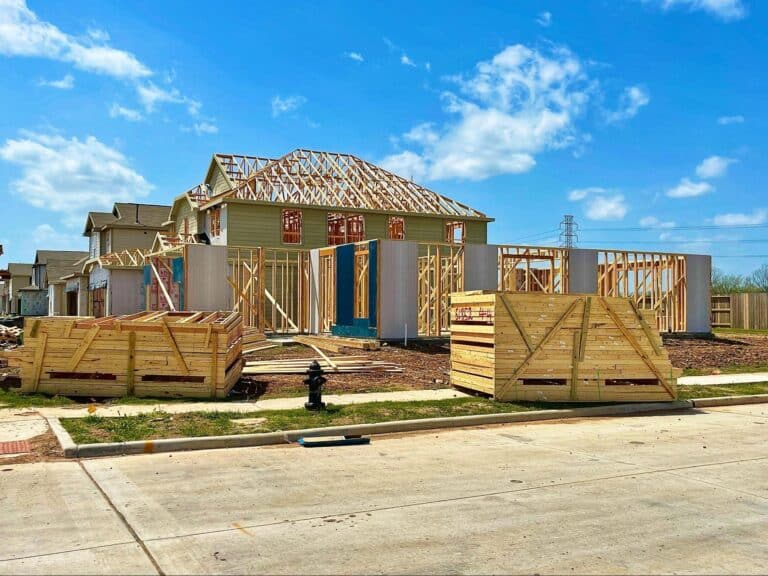Are you a renter who is torn between the idea of continuing to rent or taking the leap and building your own home? It’s a common dilemma that many individuals and families face. The decision to rent or build a home is an important one that can have long-lasting implications for your financial future and overall lifestyle.
Before making a decision, it is crucial to consider various factors that will significantly impact your life.
While renting offers flexibility and minimal responsibility, building a home provides the opportunity for customization and long-term investment.
In this blog, we will discuss the advantages and disadvantages of both options to help you make an informed decision that suits your needs and aspirations.
The Advantages of Renting a Home
Renting a home often comes with certain benefits that can make it an appealing alternative to buying. Here are a couple of the major advantages of continuing to rent vs. building a home to fit your needs.
Flexibility
One of the most significant advantages of renting is the financial flexibility it offers.
Renters have the freedom to move easily for career opportunities, lifestyle changes, or personal preferences. Whether you’re looking for better job prospects in a different city or simply seeking a change of scenery, renting allows you to uproot without the hassle of selling a property or dealing with the complexities of the real estate market.
Additionally, renting provides the convenience of not being tied down to a specific location. You can explore different neighborhoods, experience living in various areas, and determine which locations best suit your needs and preferences. This flexibility enables you to adapt to changing circumstances or pursue new opportunities without feeling limited by homeownership.
Lower Upfront Costs and Maintenance
Another advantage of renting is the lower upfront costs. When you choose to rent, you are not burdened with the hefty down payment typically required for purchasing a home. Instead of tying up a considerable amount of money in a down payment, you can allocate those funds towards other investments, such as starting a business, saving for retirement, or pursuing personal interests.
Furthermore, renting relieves you of the responsibility for ongoing maintenance and repair expenses. As a renter, any repairs or maintenance tasks required in a rental property are the responsibility of the landlord. This can save considerable time and money in comparison to homeownership.
The Advantages of Building a Home
Customization and Personalization
One of the most significant advantages of building a home is the freedom to design and create a space that aligns perfectly with your personal preferences and lifestyle. When you build a home, you have control over every aspect, from the layout and floor plan to the materials used and the overall aesthetics. This level of customization allows you to create a space that not only meets your current needs but also adapts to your future aspirations.
Additionally, building your own home provides the satisfaction of living in a space that truly reflects your style and taste. You can incorporate unique architectural features, select finishes that suit your aesthetic preferences, and design functional spaces that cater to your specific requirements. There is an immense sense of pride and fulfillment in knowing that your home is a true reflection of yourself.
Long-term Investment and Potential Cost Savings
Homeownership is often considered a long-term investment that builds equity over time. When you build a home, you have the advantage of potentially increasing its value as the real estate market improves. As you pay off your mortgage, you are building equity, which can potentially provide financial security and serve as a valuable asset in the future.
Furthermore, building a home also allows you to potentially save money in comparison to increasing rental prices over time.
While rental costs can rise annually, homeownership provides a level of stability when it comes to monthly housing expenses. By locking in a fixed mortgage payment, you avoid the uncertainty of unpredictable rent hikes. Over the long term, this can result in significant cost savings, especially as your income potentially increases.
Sense of Stability and Community
Building a home provides a sense of stability and roots in a community. When you own a piece of property, you have a permanent place to call home, giving you a sense of security and belonging. This stability can be particularly beneficial for individuals or families who desire to establish roots and build a lasting connection to their environment.
Additionally, homeownership often fosters a stronger sense of community involvement. When you own your home, you have a vested interest in your neighborhood and take pride in maintaining and improving your property. This often leads to increased engagement with local organizations, schools, and community initiatives, creating a sense of belonging and contributing to a thriving community.
4 Financial Implications of Building a House
Venturing into the world of homeownership is an exciting, yet daunting expedition filled with numerous factors. As mentioned above, one of the most important considerations are the financial implications involved.
The cost implications of building a home can vary greatly depending on your choices and the unexpected issues that might arise. While a custom-built home can potentially offer more future value due to its uniqueness and modern features, it can also be more costly than buying an existing house or a home from a pre-set or optimized floor plan.
Here are some important cost factors to consider if deciding whether it’s time to make the move from renter to homeowner:
1) Upfront Costs
The process starts with upfront costs such as the down payment, closing costs, and moving expenses. These are substantial amounts that require significant savings or financial preparation.
2) Long-term Financial Obligation
The purchase of a house also commits the buyer to a long-term financial obligation. This involves monthly mortgage repayments, property taxes, and homeowner’s insurance, among others. It’s essential to understand that this will be a recurring expense for a significant number of years, depending on the length of the mortgage term.
3) Property Appreciation
Another financial consideration is the potential for property appreciation. Owning a house can serve as an investment, where the property’s value increases over time. This could provide significant financial benefits in the future, especially if the housing market continues to grow.
4) Mortgage Rate
Lastly, the mortgage rate plays a crucial role in the financial implications of buying a house. A lower rate means less interest paid over the life of the loan, but rates can fluctuate based on the economy and your credit score. It’s crucial to secure a favorable rate to make the most out of your home purchase.
Deciding Whether You're Ready to Own a Home
Both renting and building a home have their own merits, and the choice ultimately depends on your personal circumstances and priorities.
Building a home offers advantages such as customization, long-term investment potential, and a sense of stability and community. However, it is essential to carefully evaluate your financial situation, lifestyle goals, and future plans before making a decision.
Owning a home means more stability but less flexibility compared to renting. If you value the freedom to move around for work or travel, or if you’re not ready for the maintenance responsibilities that come with homeownership, renting might be the better option for you.
Consideration of your long-term goals is another essential aspect.
Homeownership can be a significant financial investment with the potential for substantial returns over time. If you plan to stay in the same place for several years and are willing to invest time and money into a property, then buying a house could align well with your long-term goals.
Ready to Become a Homeowner? Value Built Homes is Here to Help

The journey to own a home can be an exciting yet complex process, fraught with many considerations.
From weighing the financial and lifestyle implications to exploring different types of homes and debating between building and buying, the decision is a significant one.
Whether you opt to build your dream home or continue enjoying the flexibility of renting, remember that the choice should align with your long-term goals, financial situation, and lifestyle preferences. If you opt to build, choosing a homebuilder who takes the time to understand your budget and goals is the first part of the process
Value Built Homes is here to assist you in this process. If you’re leaning towards building a home, our streamlined process, affordable and energy-efficient designs, and quick construction timeline can make your journey smoother and stress-free.
Choosing to work with Value Built Homes comes with numerous advantages. Their team of experts understands the intricacies of the homebuilding process and can help avoid common pitfalls.
They offer a personalized approach, tailoring their services to meet individual needs and preferences. This ensures that each home they build not only meets but exceeds expectations in terms of quality, design, and functionality.
Our team is committed to helping you find the best fit for your needs and budget. So, are you ready to own your own home? Let us help you take the first step towards your dream home today.





